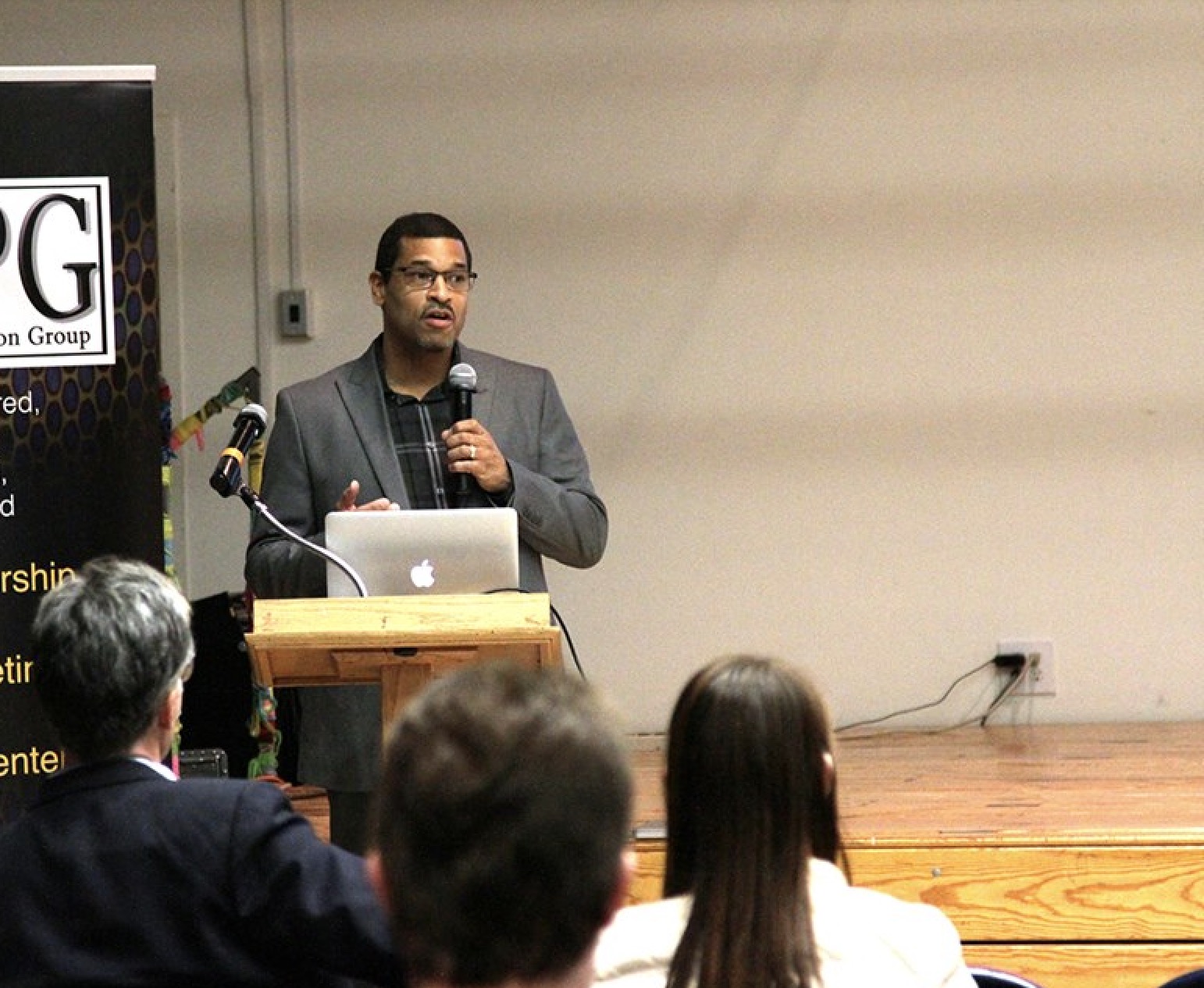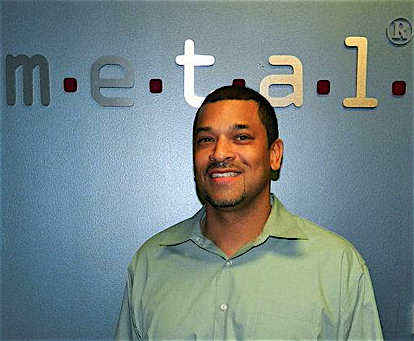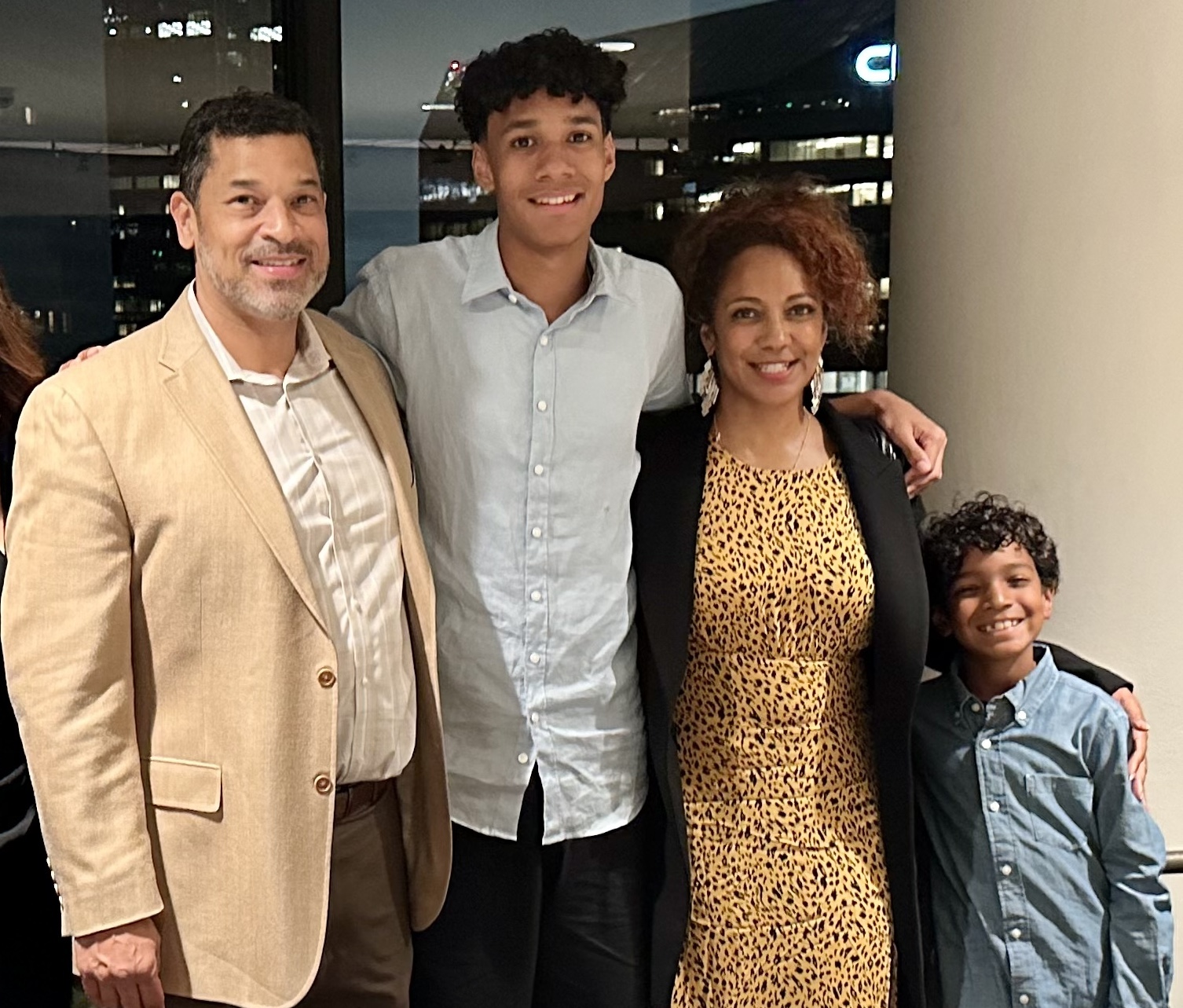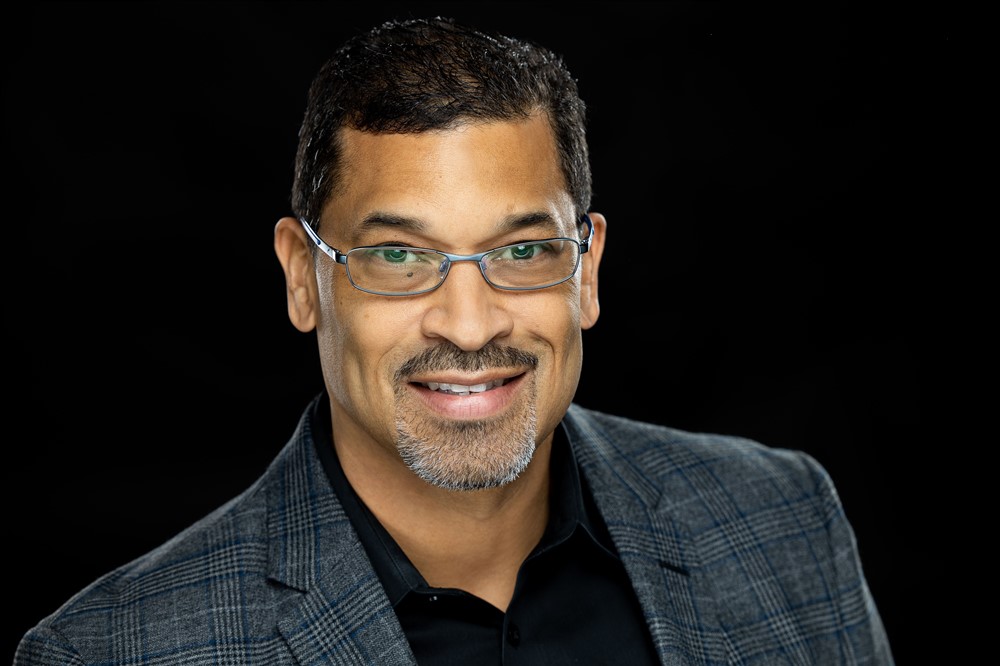We’re excited to introduce you to the always interesting and insightful Richard Jefferson. We hope you’ll enjoy our conversation with Richard below.
Alright, Richard thanks for taking the time to share your stories and insights with us today. What do you think it takes to be successful?
I believe that to achieve maximum success, a person cannot take a cautious path that avoids challenges. Experiencing failure is necessary to maximize a person’s success. It is impossible to grow beyond a person’s comfort zone if they don’t test the limits!
For example, my first business was a music placement company. I had worked for a major record label in the early 2000s and saw the potential in the music placement industry. A music placement company is a liaison between music owners and projects that want to use music in their productions, such as film, television shows, video games, commercials, and trailers. I had experience negotiating deals and believed I could build a successful business in this area.
The business model was straightforward. First, you enter deals with the recorded music owners and songwriters serving as their representatives. The owners grant the representatives the right to license their music to networks, studios, or other entertainment companies to synchronize with the footage used in the productions. The representative receives a commission as compensation. Second, the representative seeks out productions that need music by associating with music supervisors or through blind submissions to production companies.
I spent a lot of time scouting for good music because I enjoyed going out to hear bands and artists. Within six months, my company acquired the right to license a sizable music catalog.
To fulfill the second requirement of the business model, I opted to focus on blind submissions. I had access to an industry source that gave me periodic listings of productions actively seeking music. Perfect, right? I thought submitting music was a better use of my time than trying to meet music supervisors, so I sent out 10-12 weekly submissions. This was time-consuming in the early 2000s. I had to burn the CDs, create labels, assemble packages, write cover letters, and mail the submissions.
Although I secured a few placements, my business was not sustainable after about a year, and I had to close it down. Although my business had failed, it forced me to reflect on what I could have done differently. I realized a valuable lesson that was transferrable to my future endeavors. I spent too much time searching for talent who wanted to place their music, which was the easy part of the licensing business. Every artist wants to have their music placed in film or TV! I also spent a lot of my time mailing blind submissions. Neither of those tasks was critical to the success of my music placement business. They focused on the supply side of the equation. The key to success was better understanding the demand for music through activities like establishing connections with music supervisors and other professionals who placed music. I had completely discounted the importance of networking and the human element to the business.
I learned that networking is critical to building any successful business. I applied that lesson to my next venture, running a law firm, which turned out to be much more successful.

Richard, before we move on to more of these sorts of questions, can you take some time to bring our readers up to speed on you and what you do?
I started my professional career in a completely different field. I grew up in Ohio and attended THE Ohio State University (#GoBucks). I graduated with a dual Bachelor of Science degree in Industrial and Systems Engineering. After graduation, I worked for a couple of years as an engineer in Columbus, Ohio, but I always had a creative side and was curious about the entertainment industry.
In the mid-1990s, I moved to Florida for a new engineering opportunity. In my spare time, I continued to fulfill my passion for entertainment by helping a good friend who managed musicians on nights and weekends. This hobby became a potential new career path for me, as I found myself fascinated by the business and legal side of the music industry, especially the convoluted contracts. I did not understand how my friend’s artists had huge radio hits, yet the money they received did not match their success. It was that confusion that sparked my interest in becoming an entertainment attorney.
Fast forward to 2000, I graduated law school and began my legal career working in-house for Virgin Records America.
I primarily worked with indie labels that had a distribution deal with Virgin. It was a great introduction to the business and legal affairs of the music industry at its highest level. Virgin was an international record company that exposed me to novel legal issues and taught me the customs of the entertainment industry. From there, I worked at a couple of large law firms where I gained valuable experience in traditional legal areas, such as corporate transactions, mergers and acquisitions, and intellectual property. I also worked for a boutique law firm that represented high-profile entertainment companies and talent.
My early experience was incredibly formative but was not as lucrative as I had imagined, so I decided to take a more proactive approach to my career. In 2003, I co-founded a law firm with a law school classmate who was also looking to fast-track his career. We built our firm from the ground up, lasting nearly 20 years. Looking back, it has been quite the journey.
My motivation to become an entertainment attorney also stemmed from my desire to address the lack of diversity I saw in the entertainment industry. Early on, I believed that part of the issue was that not enough people from underrepresented communities were pursuing careers in law, especially in entertainment. I thought if I came to Los Angeles and became part of the legal community in the industry, I could help provide an alternative and make a difference.
However, I quickly realized the solution wasn’t so simple once I became an attorney. The legal and entertainment industries have deep-rooted, systematic challenges that prevent significant change to the status quo. It would take a concerted effort to dismantle the current system and rebuild a new one to achieve a truly diverse, equal, and inclusive environment. Although this was disappointing, I have used my position to promote and provide diverse representation where it has been historically lacking.
Currently, I am the Principal Attorney at m.e.t.a.l IP., a boutique law firm in Los Angeles. The acronym stands for the industries we focus on representing: media, entertainment, technology, action sports, and lifestyle brand industries.
For over two decades, I have routinely negotiated deals, structured joint ventures, managed intellectual property and intangible asset portfolios, and advised clients on protecting their brands in the physical, digital, and virtual worlds. I have extensive experience in several entertainment and IP sub-fields, including music, documentary films, unscripted shows, gaming, podcasts, fashion/apparel, animation, music videos, online content, Esports, and merchandising.
I have represented clients in deals with major labels, music publishers, distributors, and music streamers, including, Spotify, Universal Music Group, Capitol Records, Sony Music Entertainment, Warner Bros. Records, Atlantic Records, Warner-Chappell Music, and Disney’s Hollywood Records; television networks, studios, and digital platforms, including Netflix, Amazon, Hulu, Peacock, Apple, Fox, HBO, OWN, and Disney, Lionsgate/Summit, Hallmark, Warner Bros. Discovery, NBCUniversal, MTV Networks, The History Channel, A+E Network, Kaleidoscope Film Distribution (UK), PSSI Live, All Elite Wrestling, and Home Shopping Network; video gaming companies, such as Electronic Arts, Blizzard Entertainment, Ubisoft, Square Enix, Call of Duty League, Capcom, Riot Games, and Epic Games; high profile brands, including Triller, Twitch, Pepsi, Pioneer, Nike, Red Cross, American Heart Association, Wells Fargo, Heineken/Red Stripe, Jägermeister, Primo Water N.A., LG Electronics, Vizio, Converse, Speedo; and high profile celebrities and public figures/estates including Bob Marley, Charlie Parker, Dizzy Gillespie, Duke Ellington, Miles Davis, John Coltrane, Cab Calloway, Curtis Mayfield, Peter Tosh, Rosa Parks, Maya Angelou, Huey Newton, Cesar Chavez, Public Enemy, Tupac, Bill Russell, Muhammad Ali, Prince, Michael Jackson, and Jackie Robinson.
Problem-Solving and What Sets Me Apart From Other Attorneys
From my experience, many people’s perceptions of attorneys are more negative than positive. I have heard many negative comments about my profession, such as, “Attorneys are only concerned about billable hours” or “Attorneys are deal killers.”
I cannot speak to the truthfulness of these types of stereotypes, but I approach my role as a strong advocate for my clients, always working to ensure that the value I bring to a deal far outweighs the cost of my services.
For instance, I have a proactive approach to negotiating agreements. Instead of just going through the routine motions of commenting on the existing agreement, I usually craft new provisions that protect my clients and create contractual leverage. If any disputes arise in the future, there is an incentive for the opposing party to resolve things amicably rather than immediately considering litigation as a viable solution. I have experience with mediation and litigation, and I understand the fine line between protecting my client’s interests and maintaining an open path for dispute resolution. This balance allows me to provide my clients with long-term stability, something not all attorneys focus on.
My clients have described my law practice as methodical, efficient, and forward-thinking. I don’t look for accolades to measure my success or client appreciation. I noticed early on that people rarely thank their attorneys in their award acceptance speeches :-). I take pride in silence. The silence that comes from me having done my job so that a client does not get pulled into a dispute or litigation that derails the transaction. There will always be unexpected twists and turns in the entertainment business that will affect a deal, but I have never had a client return and say that a significant legal issue arose due to the work I performed for them. That makes me proud.

Have you ever had to pivot?
One of the biggest pivots in my life happened when I was working as an engineer after graduating from undergrad. I had a successful career, having worked my way up to a senior-level position, but despite the success, I did not feel truly passionate about the work. On the side, I was helping a good friend manage music talent in my free time, and that experience sparked a new interest in the entertainment business, particularly around contracts and ownership.
This lit a fire in me to understand how the entertainment industry really worked, and I became passionate about entertainment law. However, this was a major crossroads for me. On one hand, I had a stable engineering career, but on the other, this growing passion pulled me in a completely different direction. Pursuing law was a huge risk. I didn’t know any attorneys, and I knew the road to becoming a lawyer would be long and challenging.
I ultimately decided to take that leap of faith and created a five-year plan to transition into law. I did not have the money or resources to go to law school, so I continued working as an engineer to save money. I even moved to different cities while saving money and completing the preliminary qualifications to attend law school. I was accepted to several law schools, but Los Angeles became my focus since it was the entertainment mecca. The entertainment scene, city energy, and, yes, the weather were more compelling than other cities, so I chose to attend Southwestern Law School (#GoBison). I followed my plan and graduated from law school approximately five years after making my plan.
It was one of the most challenging decisions I have made, but looking back, I know it was the right one because I followed my passion. It was not easy, but it taught me the importance of trusting your instincts and being willing to take calculated risks when life presents new opportunities.

Can you tell us about what’s worked well for you in terms of growing your clientele?
The most effective strategy for growing my clientele has been doing quality work for my clients and actively engaging within the legal and entertainment communities. First and foremost, I focus on delivering excellent results by setting reasonable expectations and then exceeding them. This approach has helped me build strong, long-term relationships and a reputation that leads to referrals and repeat business.
In addition to delivering quality work, networking has been crucial. I have made it a point to be active in legal organizations such as the California State Bar – Intellectual Property Section, Beverly Hills Bar Association, Los Angeles County Bar Association, and Los Angeles Intellectual Property Law Association. But just as important has been my involvement in entertainment-focused organizations like the National Academy of Recording Arts and Sciences (the Grammys), ASCAP, BMI, and SESAC. These networks have allowed me to stay connected with both the legal and creative sides of the industry, which is essential for my practice.
Beyond networking, I have also focused on visibility by publishing articles, providing legal commentary in various publications and television programs, and conducting seminars and panels. I have had the opportunity to present at high-profile conferences like NATPE, SXSW, Omni Culture TV Fest, and most recently the American Film Convention, which have helped me display my expertise and build credibility within the industry. I find that by being visible, accessible, and proactive, I can connect with new clients and continue to grow my practice.
The best source of quality new clients for me has consistently been referrals from professional colleagues, such as attorneys and accountants, as well as from my existing clients. These referrals are invaluable because they tend to come from people who already understand the nature of my work and the level of service I provide, which usually results in long-term, mutually beneficial relationships.
Over the years, I have experimented with various marketing strategies and have brought in clients through those efforts, but they tend to be clients who only need limited, one-time services. While those matters are important, referrals typically bring in clients looking for ongoing, comprehensive legal support, which aligns with my goal of building lasting relationships. I find that word of mouth, especially within my professional network, leads to the most meaningful and rewarding clients.
Contact Info:
- Website: https://www.metal.law/
- Instagram: https://www.instagram.com/lawyersrock/
- Linkedin: https://www.linkedin.com/in/richardbjefferson/
- Other: https://www.lawyersrock.com/




